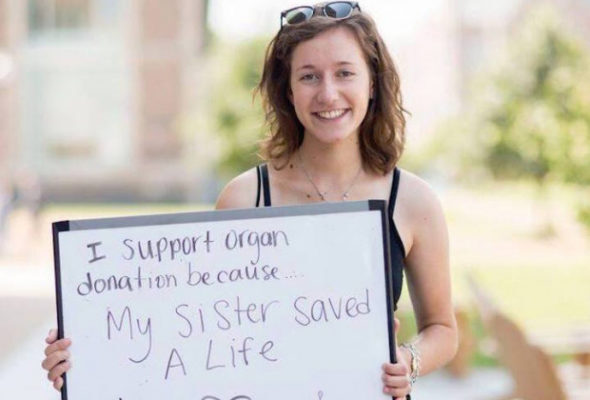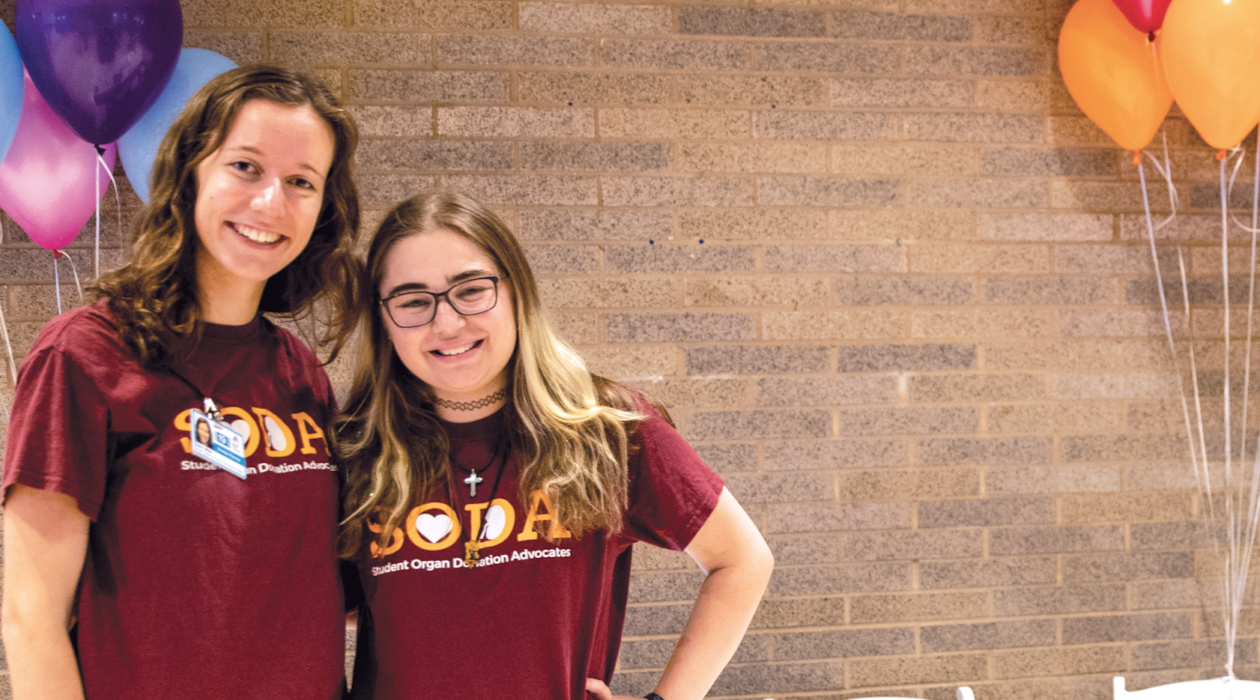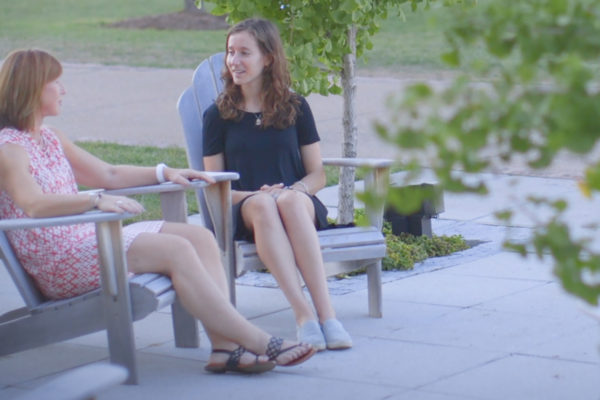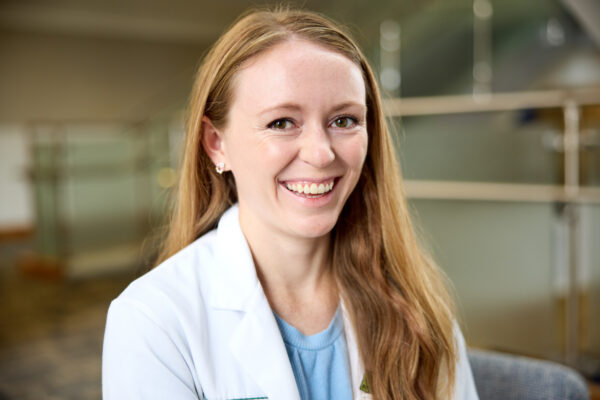According to the U.S Government Information on Organ Donation and Transplantation, while 95% of U.S. adults support organ donation, only 58% are actually registered organ donors. Sara Miller (BSBA ‘17) is committed to closing this donation gap through education and advocacy. She became passionate about organ donation awareness through first-hand experience.
At 12 years old, Miller lost her older sister, Laura, to brain cancer. She didn’t know much about organ donation at the time, but when her family was presented with the option for Laura to be an organ donor, Miller convinced her parents they should say “yes.”
“I often think about what would happen if I ever needed an organ to save my life, and how grateful I would be to receive a life-saving transplant. By registering as a potential organ donor, you are potentially giving someone another chance at life,” said Miller. Trish O’Neill, a special education teacher from upstate New York, was given another chance at life thanks to Laura’s organ donation. This profound experience at an early age showed Miller the real impact that advocacy can have on people’s lives.
Miller could have left this devastating experience in her past — instead, she made advocating for organ donation a central part of her college experience. During her first semester at WashU, she founded SODA: Student Organ Donation Advocates, a social impact organization that educates students about the importance of organ donation and registers them as potential donors. She wanted to empower her peers with life-saving knowledge they could use to become life-long donation advocates. As Miller learned from her early, personal experience with organ donation, individual actions can make a difference and multiple actions, like hers, can create a nationwide movement.

Between Miller’s personal passion for organ donation advocacy and the enthusiasm of WashU’s study body, SODA became a powerful force on campus. The organization hosted events such as donor-registration drives and discussions with bioethicists and surgeons to educate students about the myths and realities of organ donation. As SODA’s founder and president, she collaborated with her peers to empower them to participate in meaningful social impact. Before graduating, Miller trained over 50 organ-donation ambassadors with the mission to raise awareness on campus and beyond.
“Social entrepreneurship means working on behalf of a worthwhile cause and empowering others to get involved and act on their passions. It also means helping the next generation of student leaders build skills and become effective and courageous in their work,” says Miller.
At WashU, Miller found a network of resources and support across campus that helped her launch her social enterprise. In her Healthcare Management and Psychology courses, she gained valuable leadership skills which she relies on to this day to continue expanding SODA and effectively manage her volunteer team. The Gephardt Institute also supported SODA, providing funding and guidance along the way.
Miller’s close relationship with WashU did not end after graduation. “Even after I graduated, WashU resources have been invaluable for expanding SODA’s mission,” Miller said. SODA filed as a 501(c)(3) non-profit organization thanks to complimentary legal support from Washington University School of Law’s Entrepreneurship and Intellectual Property Clinic. She continues to work with the clinic as SODA expands nationally.
Since 2014, SODA has grown from a single chapter to 21 chapters across the country. Even though Miller is currently working full-time as a Senior Operations Innovation Analyst at Optimum, she also serves as SODA’s President and continues to lead the organization’s expansion efforts.
“I wake up early to take SODA calls and work late at night to reply to SODA emails and advance our goals. While it can be tricky to balance these demanding roles, my passion for SODA’s life-saving work makes the time worth investing,” Miller said.
It can be challenging to lead a rapidly growing organization and ensure that core values withstand growth.
“It is critical to keep what we believe front and center: student advocacy can reduce the organ shortage and save more lives,” said Miller. She maintains this focus through effective internal communication between the national team and the individual chapters. An active Slack channel and a strong support system help chapter leaders access resources such as supplies and reimbursement for on-campus events. Such collaboration keeps everyone engaged and connected with these overarching objectives.
Further, to ensure SODA is taken seriously by more established organizations, Miller employs a growth mindset centered on constant improvement. Initially, she found that because she was young, some people were not confident in her leadership. She effectively combatted this perception by being diligent in her responsiveness and receptive to feedback and new ideas from mentors.
“I’ve learned that people who make the most impact have a more advanced meaning of the word ‘done.’ Instead of seeing ‘done’ as submitting the first draft, they see ‘done’ as being okay submitting a fourth and fifth draft that incorporates feedback from those around them.”– Sara Miller
For current students who want to make a difference on campus, Miller recommends learning from people who have similar goals—especially those only a few years older than you. Such networking can help you cement the next steps for your venture. But her most important advice is to always express gratitude to those who helped you along the way.
Says Miller, “These small gestures help strengthen existing relationships and leave the recipient with a smile and increased confidence in your mission.”
If you want to register as an organ donor:
- Register only by visiting register.org/campaign/sodanational
- Say “yes” to organ donation when getting a new license at the DMV.
- If you have an iPhone, register using the Health app.



